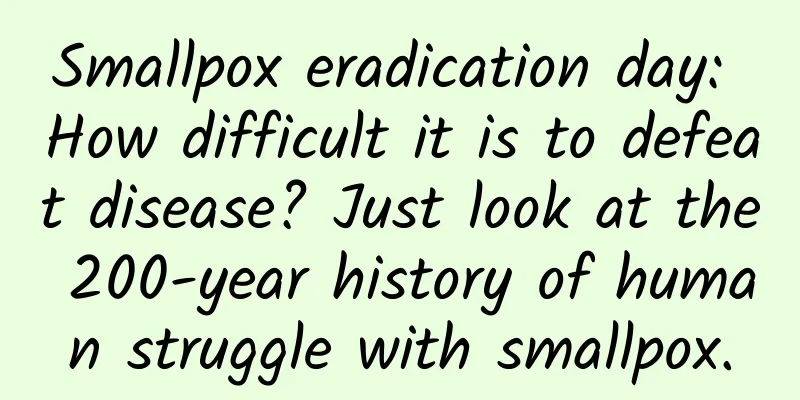Seven contraceptive methods that women should never use

|
1. Contraception during the “safe period” The so-called "safe period" refers to the 7 days before a woman's menstruation and the first 8 days after her menstruation. People also call it "seven in front and eight in the back". This period is not the ovulation period for women. If a couple has sex during this time, the woman generally will not get pregnant, so people call this period the "safe period." But the "safe period" is not absolutely safe. Because some women have irregular ovulation. Even if some women have regular ovulation, their ovulation may lose its original regularity when their emotions, living environment and physical condition undergo major changes. Therefore, using the female safe period for contraception is not safe. 2. Contraception during lactation Women who do not breastfeed will usually resume ovulation and menstruation 4-6 weeks after giving birth. Most breastfeeding mothers do not have menstruation. Some people believe that breastfeeding mothers will not have menstruation, will not ovulate, and therefore will not get pregnant. In fact, this understanding is wrong. Even if a breastfeeding mother does not have her period, she may still be able to ovulate. If contraception is not used during this period, it is very easy for the woman to become pregnant. Therefore, breastfeeding mothers should also use contraception. 3. Urine method of contraception Some people believe that after a man and a woman have sex, having the woman flush her vagina once with urine can prevent pregnancy. This is a confused understanding. The female vagina and urethra are two different organs. After a man and a woman have sex, it is impossible for the woman to flush the sperm in another channel out of her body by urinating. 4. Contraception during menopause Some menopausal women think that they are too old to get pregnant, so they avoid pregnancy during menopause. That's not entirely true. Although women in menopause experience menstrual disorders, they still experience irregular ovulation. Therefore, women in menopause may still become pregnant if they do not take contraceptive measures. 5. Artificial abortion as a contraceptive Some couples believe that contraception is unnecessary during intercourse. If the woman is pregnant, an abortion can still achieve the purpose of contraception. This understanding is not only wrong, 6. Contraception by ejaculation outside the body Some people believe that if the man ejaculates outside the woman's body during intercourse, he will prevent the woman from getting pregnant. This understanding is biased. Because, first of all, before the man ejaculates outside the body, a small amount of semen has already flowed into the woman's vagina along with his prostatic fluid. Secondly, if the man moves too slowly during external ejaculation, some semen may be ejaculated into the woman's vagina. This will lead to the woman becoming pregnant. Long-term use of this method of contraception can easily cause both spouses to become too nervous during intercourse, leading to neurasthenia, loss of libido and other symptoms. 7. Vaginal douching for contraception Some people believe that if the woman does vaginal douching after having sex, she can prevent pregnancy. This method is actually very unsafe. During intercourse, if the man ejaculates, countless sperm will quickly swim into the woman's uterine cavity. At this point, no matter how the woman performs vaginal douching, she cannot flush all the sperm out of her body. Therefore, women can still get pregnant using vaginal douching as a contraceptive method. |
>>: Nine things to note when treating acute pelvic inflammatory disease in women
Recommend
Outstanding Works of the National College Students' Health Science Popularization Competition: A Guide to Eye Protection for Teenagers in the Screen Reading Era
In response to the call of "Healthy China 20...
Constipation in early pregnancy, learn 5 points to avoid worries
Many women will experience constipation symptoms ...
What should I do if my face is covered with acne during pregnancy?
Many pregnant women will develop acne on their fa...
Dangers of walking during early pregnancy
In the early stages of pregnancy, if women walk a...
How many flavors does Samyang Turkey Ramen have? What is the correct way to eat Samyang Cheese Turkey Ramen?
This is my first time trying Samyang Cheese Turke...
A brief analysis of the causes, prevention and treatment of hypoxemia after high altitude surgery
At the top of the plateau, hypoxemia is a constan...
Is the pain in the lower abdomen due to pregnancy?
Many women who are preparing for pregnancy will w...
Dietary taboos during pregnancy
Pregnant women should pay more attention to their...
Wear a condom when having sex if you have inflammation
The probability of women developing gynecological...
Scientific diet for patients with chronic kidney disease - teach you step by step to develop a diet that suits you
In addition to strictly following the doctor'...
The relationship between COVID-19 and stroke
COVID-19 is a contagious respiratory disease caus...
What are the benefits of red bean and barley tea? Is red bean and barley tea cooling or hot?
Red bean and barley tea is a tea made of adzuki b...
What should women eat to improve their skin?
For women, having perfect skin will bring them ma...
[Vaccine Cartoon] Are there any restrictions on vaccination for children who are allergic to milk?
...
Is it normal for early pregnancy symptoms to suddenly subside?
Everyone knows that women have many early pregnan...









